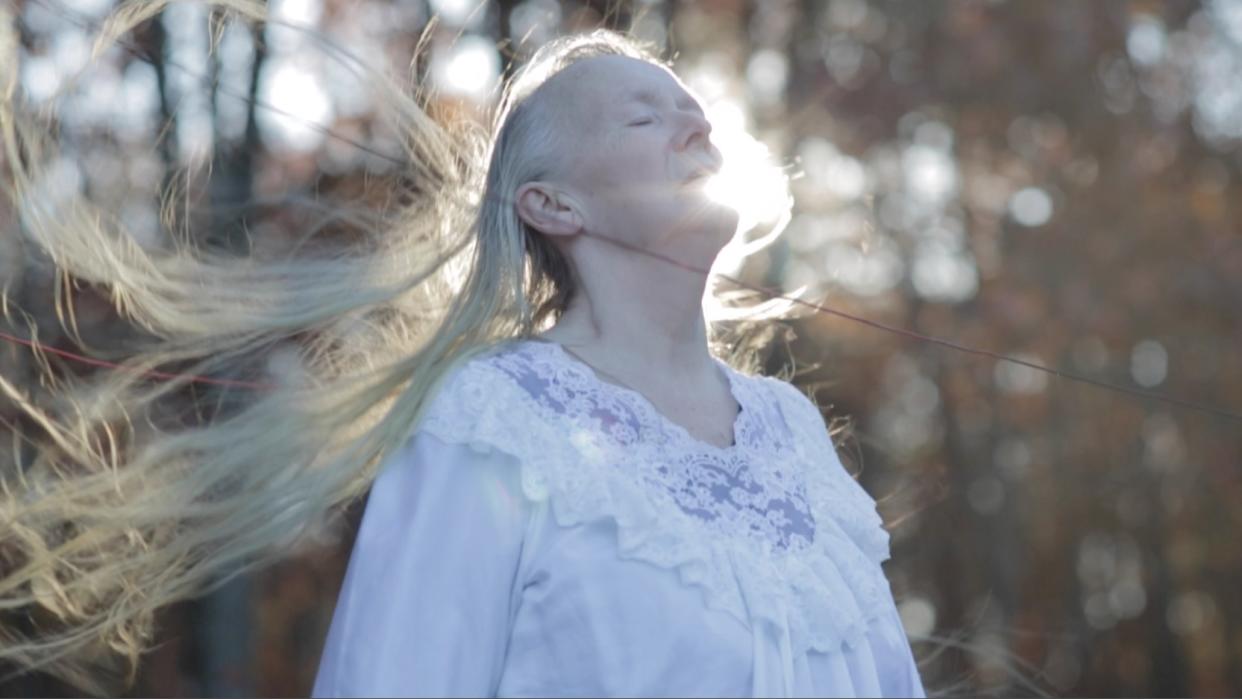Film Review: ‘Sunset Edge’

Rummaging around dilapidated rural environments like a bemused visitor to a foreign world, “Sunset Edge” affects a “George Washington”-cum-“Gummo” guise — and a guise it is, as writer-director Daniel Peddle’s debut feature is as uninterested in examining its chosen milieu as it is in fashioning anything approaching an engaging narrative. What little plot there is involves a group of four friends spending time in an abandoned North Carolina trailer park and, over the course of their stay, being stalked by a mysterious figure. That silent specter lends the material a faint horror-movie atmosphere, although there’s little suspense to be found in this rambling indie odyssey, which putters about in search of a point, and whose commercial prospects are as bleak as its chosen setting.
The film opens with its quartet of teens (William Dickerson, Jacob Kristian Ingle, Haley Ann McKnight, Blaine Edward Pugh) taking up residence in the middle of a stretch of asphalt that bifurcates Sunset Edge, a gone-to-seed, low-income community whose residences are now damaged beyond repair and populated by all manner of junk and debris. One of the kids’ ruminations on humanity’s place in the universe makes plain the kids’ feelings about their own insignificance. Yet otherwise, Peddle’s script provides no background on its subjects, just as it refuses to develop any of their personalities or relationships to one another. Instead, they’re merely hanging-out ciphers, consuming junk food and roaming this derelict area like tourists — that last notion made plain by a later revelation that one of the boys owns a new pickup truck and paintball gear, thus indicating that these characters hail from far better economic circumstances than those who once lived in Sunset Edge.
After much navel gazing, Peddle’s film abruptly shifts its focus to a half-Mexican boy named Malachi (Gilberto Padilla), who, now that his grandfather has passed away, lives alone in the nearby woods. Through a combination of free-floating flashbacks and scenes of Malachi going to Sunset Edge — and, in particular, to a trailer that was once home to a killer — the film feigns interest in actual storytelling. Alas, its revelations are so obvious that they do little more than further emphasize the impression that Peddle is more interested in crafting beautiful snapshots of kids wandering through the forest and mucking about in trash than in providing even the faintest framework for his aesthetic experimentations.
Those include overlapping imagery, compositions rooted in the contrast between shadow and light, and fractured chronology. Karim Lopez’s camerawork has an assured grace that conveys the trailer park’s neglected raggedness, and a few offhand shots — of hands grabbing keys hanging on a nail in the wall; of the echoing sound of a skateboard rolling down an empty road in the middle of nowhere; of an old man stirring a bowl of instant oatmeal — carry a potent, if ambiguous, power. However oblique it remains, “Sunset Edge” feels like the work of curious filmmakers, searching for intangible truths in sights of people exploring both a past that’s been forgotten by most, and a present that can’t seem to quite move forward in any meaningful, appreciable way.
Unfortunately, such expressionistic devices (which also involve random cutaways to an anonymous, elderly woman with flowing white hair) can’t compensate for the fact that this tale fails to provide even a cursory reason to care about the plight of its protagonists, or the run-down locale in which they spend their time. A last act that devolves into more suspenseful, hunter-vs.-hunted territory plays like a tacked-on afterthought, and further proof that Peddle should have spent more time on a script that at least tried to justify its, and the film’s, own existence.
Get more from Variety and Variety411: Follow us on Twitter, Facebook, Newsletter
